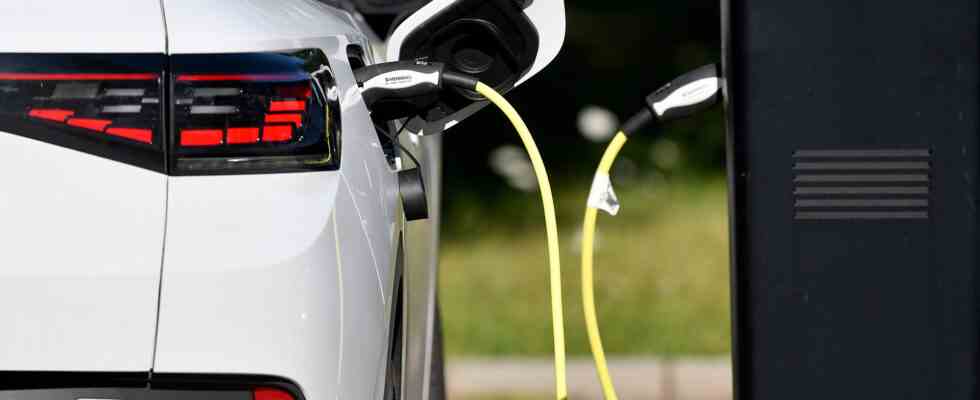Status: 10/19/2022 6:32 p.m
The government wants to accelerate the expansion of charging stations. Because sales of e-cars are increasing – despite high electricity prices. But the expansion target is still a long way off.
48,389 – this number apparently triggered something in Transport Minister Volker Wissing. 48,389 electric cars were registered in Germany in September, more than new diesels. For Wissing, this is “a first indication that things are really starting” – with electric cars in Germany.
The new number is not a record, but despite the Ukraine war and high electricity prices, there are signs of an upward trend in e-car sales. And if there are more e-cars, more charging stations will soon be needed. For example in the countryside, where the charging network is often still very patchy today. “Where there is no supply of charging infrastructure, we risk mobility gaps. And as Minister of Transport, I want and must avoid that at all costs,” says Wissing.
Federal Transport Minister Wissing presents a plan for the rapid expansion of charging points for electric cars
Stephan Stuchlik, ARD Berlin, daily news 5:00 p.m., October 19, 2022
Residential areas and gas stations as focal points
A new plan for expanding the charging stations should help. The cabinet approved it today. Where it is not worthwhile for private providers to build charging stations because only a few people live in the area, government regulations and support measures should ensure that something happens anyway. The new charging stations are to be built primarily in residential areas and at gas stations. Integrating them into the power grid is what Wissing sees as “probably the most difficult task we have ever faced”.
Johannes Pallasch, head of the national control center for charging infrastructure, is also concerned with the question. Locations on the major traffic routes in Germany have to be connected to the high-voltage grid. “In principle, we have to trigger this action today,” says Pallasch. “We can’t wait until we realize: OK, the grid connection is getting tight – and then we’ll have to wait more than ten years for the high-voltage connection to be there. That has to be made possible today with foresight.”
“We’ve been messing around since 2009”
Dozens of measures can be found in the government’s new plan, most of them very cloudy or extremely detailed. Distribution grid operators should be obliged to deliver maps of the electricity grid in a specific file format to a central location.
“Since 2009, 2010 we’ve been wobbling around with the charging infrastructure in Germany,” says Andreas Knie, traffic researcher at the Berlin Science Center. “In Germany, the auto industry blamed the state, the state waited for the auto industry.” Now there are too many players in the game who are supposed to drive the expansion forward. “A “bureaucratic monster,” the expert laments, “with tenders, with upper price limits, where no one knows who is actually responsible for what and how.”
Despite problems with the charging network and despite high electricity prices, the number of registrations for e-cars is currently going up. And the transport minister does not believe that electricity prices will remain so high. “I consider the development of electricity prices to be temporary,” says Wissing.
More funding for self-sufficient electricity?
In addition, due to the rising CO2 price, petrol should tend to become more and more expensive. The government is also considering how to better promote self-sufficiency in electricity. According to Wissing, anyone who installs solar cells in their garage or house should be able to use solar power to charge their e-car at a reduced rate or “ideally free of charge”. The proposal should become more concrete at the beginning of next year. “In the end, we won’t be able to be mobile without using climate-neutral drives,” says the Transport Minister.
But he also says: “Electromobility will only be accepted if charging is as easy as refueling is today”. It might take a while before that happens. Two numbers in particular should worry Wissing. By the end of the decade there should be one million public charging points in Germany. Currently there are just 70,000.
Government approves plan for more charging stations
Marcel Heberlein, ARD Berlin, 10/19/2022 5:40 p.m

